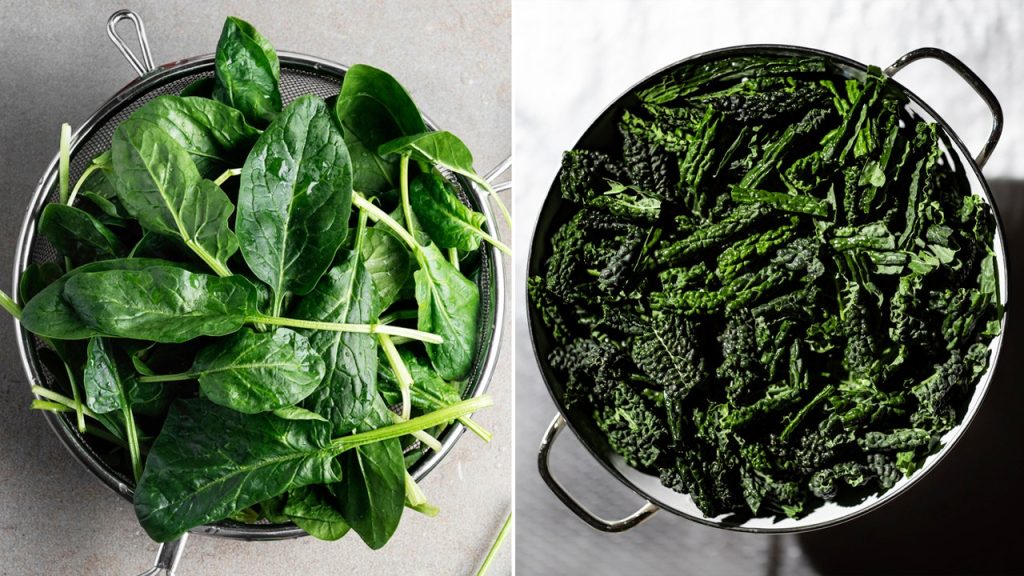Spinach and kale are two highly nutrient-dense dark leafy green vegetables that are often compared in terms of their health benefits. While both are healthy options, they do offer some distinct advantages. Kale is high in fiber, vitamin C, vitamin A, and potassium. It is also part of the cruciferous vegetable family, known for its cancer-protective properties. Kale is rich in antioxidants and is considered one of the healthiest vegetables available. Spinach, on the other hand, is praised for its high levels of vitamins K, C, and calcium. It also contains folate, which supports cell division and prevents birth defects during pregnancy. Spinach is particularly high in iron, which is important for blood cells, energy, and growth.
Both spinach and kale offer a variety of essential nutrients, making it difficult to determine a clear winner between the two. The choice between them largely depends on individual preferences and dietary needs. If you are looking for a food high in fiber, vitamins K and C, kale may be the better choice. On the other hand, if you are seeking a source of folate, iron, and vitamins A and E, spinach is a good option. It is recommended to consume a variety of fruits and vegetables, including both spinach and kale, to ensure a well-rounded nutrient intake. Eating a diverse range of fruits and vegetables provides the body with different nutrients necessary for overall health.
When it comes to incorporating kale and spinach into your meals, there are various options. Both greens can be eaten raw, cooked, or juiced, and can be added to salads, soups, smoothies, and stir-fries. When buying fresh kale or spinach, look for leaves that are fresh and green, while avoiding those that are yellow or brown. These leafy greens can be stored in the refrigerator for up to five days. Additionally, frozen spinach and kale are also viable options that are nutrient-dense and budget-friendly. They can be kept in the freezer for months without spoiling. Meal prep ideas include cooking spinach or kale with chickpeas and serving it with tahini sauce, providing a delicious and nutritious meal option.
Overall, both spinach and kale offer unique health benefits and are valuable additions to a well-balanced diet. By incorporating these greens into your meals, you can enjoy their distinct flavors and reap the numerous nutritional advantages they provide. Whether you prefer one over the other or enjoy both equally, it’s important to include a variety of fruits and vegetables in your diet to ensure optimal health. With their rich nutrient profiles, both spinach and kale can contribute to a wholesome and nutritious eating plan.













